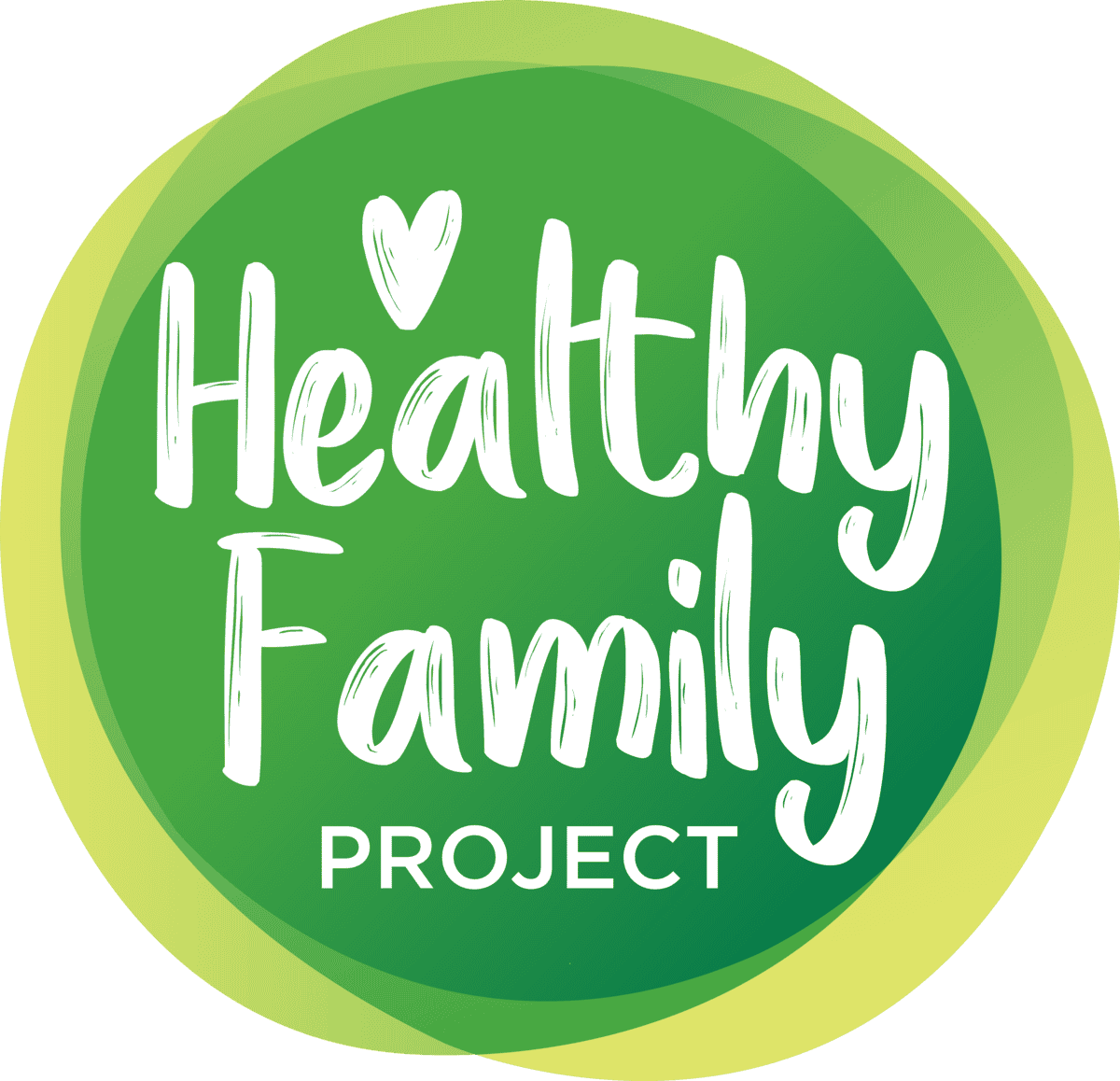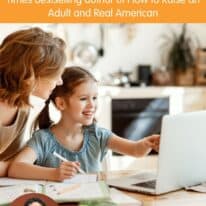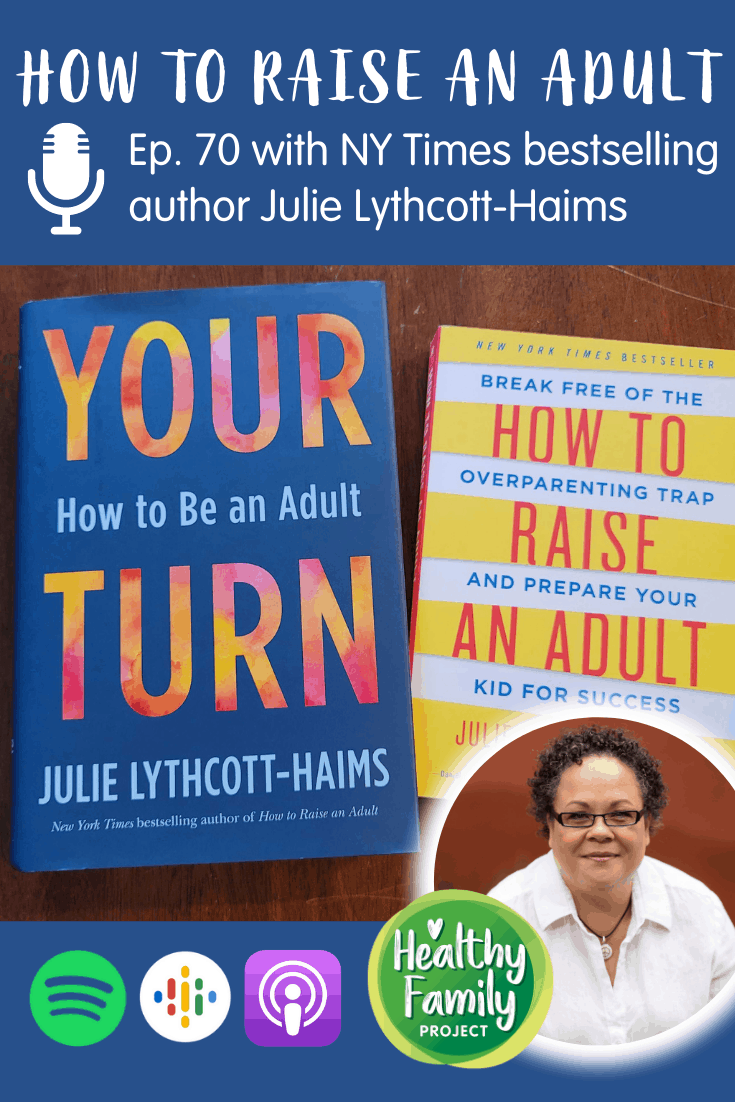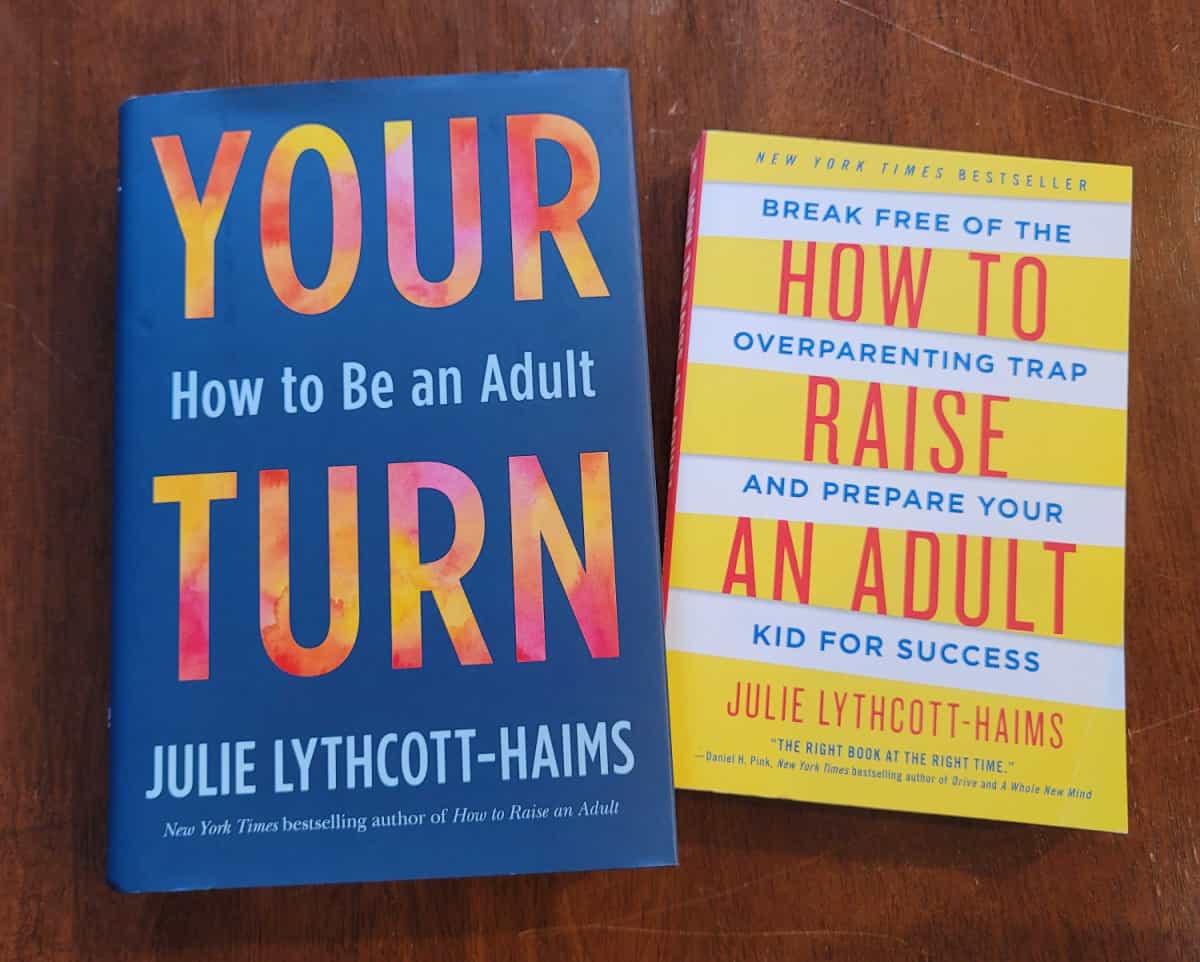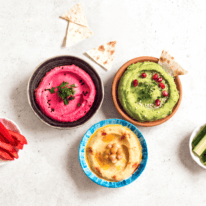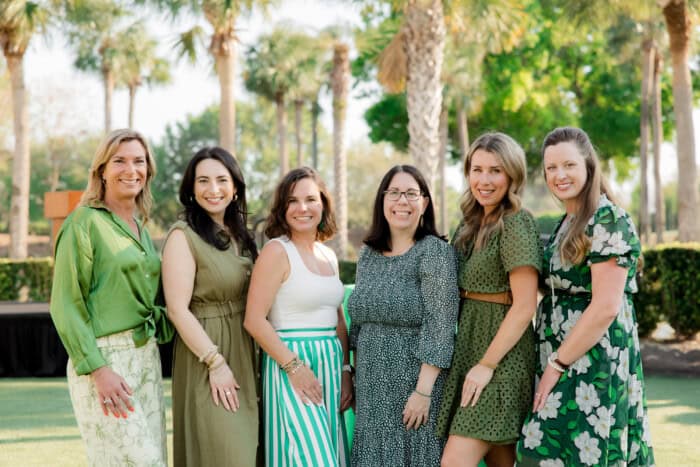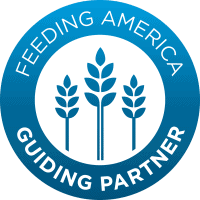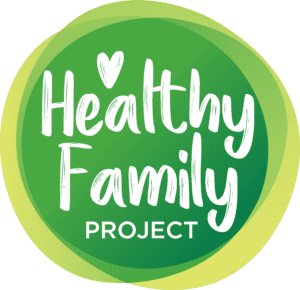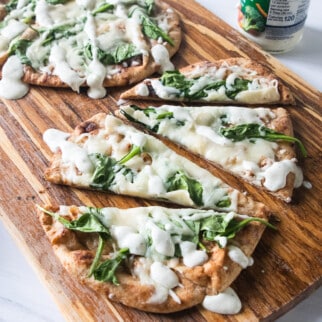Episode 70: How to Raise an Adult
This episode of the Healthy Family Project podcast is all about how parents can prepare their children for adulthood. We’re joined by New York Times bestselling author, Julie Lythcott-Haims, for an honest conversation about how our parenting style can inspire independence and confidence. Julie shares tips for parents to help them empower their children to develop agency and a 4-step process to transition our kids from depending on us for tasks to doing it themselves.
To say that parenting is hard would be the understatement of the year. Parenting is a delicate balance of keeping your children safe, providing their essential needs, helping them navigate transitional periods, and providing them the tools to help them blossom into adulthood. Raising an adult that is ready to navigate the real world can be a challenging task, but since all of us parents face it, we are excited to be sharing these helpful parenting tips.
Several years ago, Julie observed the long-term effects of overparenting while working at a university. This inspired her to publish her best-selling book, How to Raise an Adult. During our conversation, we got lots of great insights for Julie to help us break those parenting habits that make children become overdependent on us and less likely to develop anxiety.
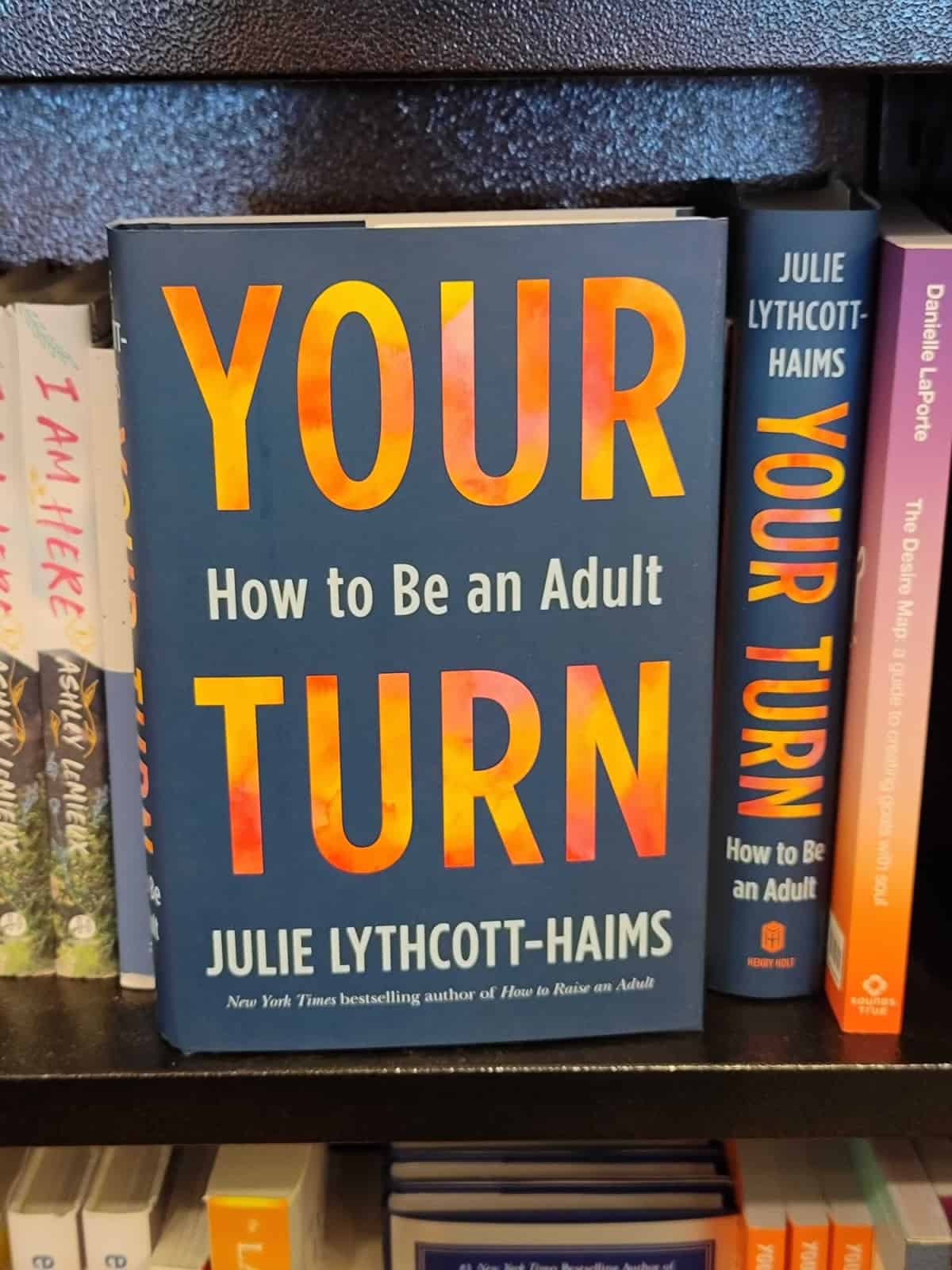
Listen to the episode How To Raise An Adult
What We Cover:
Want to skip straight to a hot topic? See timestamps below. But of course, we recommend listening all the way through to get all the great tips and tricks!
- 2:36 Welcome, Julie!
- 3:52 What was your inspiration for writing How to Raise an Adult?
- 6:52 Advice for parents who want to avoid being helicopter parents
- 12:20 4 Step Method to Getting Kids to do things for themselves
- 15:26 Tips to help parents let go during transitional phases
- 22:40 Opportunities for teaching moments
- 25:30 Advice for the college arm race
- 30:43 Relationship between overparenting and the negative impact on confidence
- 34:03 Inspiration for Julie’s new book
- 42:29 What does a healthy family mean to you?
Watch It!
About Our Guest, Julie Lythcott-Haims
Julie Lythcott-Haims is the New York Times bestselling author of How to Raise an Adult and Real American. She holds a BA from Stanford, a JD from Harvard Law School, and an MFA from California College of the Arts. She resides in the Bay Area with her partner, their two itinerant young adults, and her mother.
Relevant Links
- Follow Julie on Instagram and Facebook and check out her website
- Check out Julie’s books:
- Fiske Guide to Colleges
- Julie’s TED Talk: How to raise successful kids – without over-parenting
- Four Parenting Tips to Raise an Adult
- 2021 Best Colleges in America
- Fiske Guide to Colleges 2022 (via Amazon affiliate link)
- The Alumni Factor Campus DNA
- Julie’s Book Recommendations
Other Podcast Episodes to Check Out:
- Episode 60: Teaching Kids to Prepare Healthy Snacks
- Episode 35: Helping Kids Make Good Choices
- Episode 25: Easing Testing Anxiety in Kids and Teens
- Episode 31: Balancing Career & Family
- Episode 42: Teaching Kids About Managing Money
- Episode 54: Family Dinner Conversation Starters
Healthy Family Project Facebook Group
Join our Healthy Family Project Facebook group! This group will serve as a safe space for parents and caregivers to talk all about raising a healthy family – from dealing with a picky eater and tips to get more fruits and veggies onto plates to exercising as a family and mental health. We welcome all of you to join in!
Listener Survey!
Thank you so much for supporting the Healthy Family Project Podcast! We’d love it if you could take 5 minutes to let us know how we can bring you the best possible content for future episodes. Take the survey here.
Healthy Family Project Podcast
Conversations covering hot topics in the world of health, food and family with a dose of fun. Helping families ease their way into a new fresh and healthy world.
Be on the lookout for new bi-weekly episodes and don’t forget to subscribe on Apple Podcasts, Google Podcasts, Spotify or your favorite podcasting site. If you like an episode, make sure to leave a rating and comment.
If you are interested in being a guest on the Healthy Family Project podcast, contact amanda@healthyfamilyproject.com with your topic idea for consideration.
Transcript for Episode 70
This transcript was produced by Otter.Ai. Please forgive any misspellings and grammatical errors.
00:09
Welcome to the healthy family project by produce for kids, covering the hot topics in the world of health,
food and family with a dose of fun. Welcome to the healthy family project. I’m your host Amanda. Today I
have a guest host my calling Trish James, she’ll be talking to the author of her favorite book how to raise
an adult by Julie Liskov aims before I turn it over to Trish just a few updates for all of you. If you haven’t
already, be sure to join our Facebook group simply search healthy family project on Facebook and I’ll be
able to approve you to join the group. We had a lot of great summer content over on our Instagram and
website healthy family project.com Find out how to not use your oven because it’s really hot out and we’d
like to not do that. Let’s still deliver a healthy delicious meal for your family. And also find ways to take
advantage of all the in season fruits and vegetables out there right now along with you know regular
content that we’re putting out weekly recipes and, and tips for the family. We do have an E newsletter
that goes out weekly. If you’d like all of our weekly content delivered in one spot, you can sign up for the
show notes in the show notes or on the website. So without further ado, I will turn you over to Trish for
today’s episode.
01:27
Hello everyone. I am Chris James and I am a team member over at the healthy family project. You may
have heard me on one of our episodes back in October when we discuss food allergies and the impact
they have on families. Well today I am guest hosting because we have a very special guest joining us on
a subject that is near and dear to me. So Amanda was gracious enough to pass the microphone on over.
Today we are talking to Julie lift Kok hams. Julie believes in humans and is deeply interested in what
gets in their way. She’s the New York Times bestselling author of the anti helicopter parenting manifesto
how to raise an adult, which gave rise to a TED Talk that has more than 5 million views. Her second book
is the critically acclaimed and award winning prose poetry memoir, real American, which illustrates her
experience as a black and biracial person in a white space. Her most recent book, your turn how to be
an adult is an inspirational work aiming to help humans live a more authentic adulthood. She lives in the
San Francisco Bay Area with her partner of over 30 years. They’re itinerant to young adults and her
mother. Please join me in welcoming Julie to the healthy family project. Hi, Julie,
02:36
I really, really appreciate you joining us today. I actually first heard you speak in 2017. My friend and I, we
were at the Women’s Conference in Pennsylvania. And we heard you speak and we immediately bought
your book. At the time my little my guys were younger, she had like a two or three year old. And it’s just
really great to hear you and to talk to you today. I’m so excited for you to join us. So thank you very
much.
03:05
Trish, thank you so much for having me. You’re making me chuckle because I remember that
Pennsylvania women’s conference. It was October 2017. And my new book, my memoir on race had
come out that day. It was publication day. And so I was feeling just very excited. And just in that zone of
like, wow, something new is entering the world. And I hope it does well. And yeah, and I really, of course
the Pennsylvania the conferences for women are an amazing organization. And it was just a lot of great
energy that day. So I’m glad you were there and glad it was yes.
03:40
Yes. Thank you. So what was your inspiration for the book you talked about a little bit in the book, but
what was really your inspiration when writing the book,
03:50
or how to raise an adult? Yes. I was a dean on the campus at Stanford University. I was observing how
childhood had changed from the late 90s. Through the 2000s, we saw an increase in the number of
parents who were basically showing up on campus to behave for their student or to do things for their
student evincing no confidence that their student could handle the basic stuff. I mean, register for
classes, talk to faculty when they had concerns, sort out run of the mill problems, navigate a
bureaucracy, just the stuff of life, right that prior generations of college students had managed to handle
more or less not perfectly. It’s never about perfection, but it’s life is is learned. You learn how to live life by
living life, as opposed to by having life handled for you, right into much handling. And I grew concerned
because I can also see that students weren’t very confident about their ability to handle stuff so and they
were relieved when their parents got involved. And I thought hey, wait a minute, long term what’s going
on? happen. What if these kids quote unquote, don’t ever learn? What’s going to become of them?
What’s going to become of our society? Right? A whole generation can’t hashtag adult, which is a term of
course Millennials began using. So it was really an empathy for young adults who seemed although
highly academically achieving, they seemed underbaked when it came to their, how to navigate my way
through life kind of skills. So that’s why I wrote that first book.
05:32
Right, exactly. And I love that term. underbaked. I am currently baking my own children. I love that I love
that term. So one of the things you kind of throughout the book, you know, you go talk about the little
ones, you talk about, you know, middle schoolers, and then you talk about young adults going from high
school to college. And again, when I first read the book, my little ones were there, they’re not little
anymore, my big ones for little then. And I was definitely a helicopter parent. I mean, I was told I was
helicopter parent, I wore that badge, very proudly. And then I started to realize, like, this really isn’t
working. And I could see the boys really trying to pull away and I was trying to, you know, go after it even
more so. But one of the things that you’re talking about is why we do it is that, like, we’re so scared, you
know, the dangers of outside or, you know, people picking up kids and, you know, get them getting hurt.
And so you really talk about how we need to get back to when we were little and we were just Siya go
outside? And we’ll see you know, we’ll see you at lunchtime. So why isn’t that important to you? And then
to follow up? Do you have any advice and tips for moms and dads who are trying to not be helicopter
parents, especially when they’re little?
06:52
Absolutely. So the first thing I want your listeners to know is I have kids, my kids are now 21 and 19. And
I saw a problem on my university campus, as I explained, and it wasn’t a Stanford problem. It was a
American problem that I happen to notice at Stanford, but deans and faculty across the country at all
different types of colleges and universities, we’re seeing the same thing parents who seem to feel a need
to do for their kids, because maybe their kids could do for themselves. So I’m this, this Dean working with
other people’s kids. But then it turns out, even though I’m railing against the over involvement at college,
I come to this very mortifying realization, some years into this, that I too am a helicopter parent, that I
though I can rail against it when I see it, and other people’s 18 and 20 year olds, I’m doing it with my
eight and 10 year old and my aha moment was, came home from work one day, sat down for dinner, sat
next to my 10 year old, we were having chicken that night, and I leaned over his plate and began cutting
his meat. Yeah, it’s a perfectly right, we get we we want to be helpful. We want to be safe, we want to be
efficient. So of course, we can cut the meat the meat safely, because we’re the grown up. And of course,
we can do it quickly, because we’re the grown up, right, right. And we can make it all happen. Why cuz
we’re the grown up. So my point is, that was my aha, oh my gosh, I’m not gonna be able to let go of this
kid with any confidence in either his brain or mind that he can do for himself when he leaves our home at
- Because I’m cutting the meat of a 10 year old. And I realized that every single life skill has to be
taught first we do it for them. But at some point, they do it themselves. And there’s this process two steps
in between there, where we teach them and watch them and and we all develop confidence that they can
do it. So I want your listeners to know I am not this author pointing fingers at helicopter parents, or slash I
am yet I’m pointing the finger largely at myself and back at me, please learn from my mistakes, because
I’ve seen the how it plays out. So of course, we’re afraid of course, we love them. And yet, if you just take
parenting out of this moment, like I need to ensure right now that everything is fine, and take the long
view which is I’m going to be dead one day and need to know. And my kid needs to know that they’ve got
it that they know how to use good judgment, about crossing the street about how to behave in a store or
a mall that they know how to navigate the bureaucracy of a school or a job situation that they know how
to fill out forms and track their own deadlines and apologize for their own mistakes. Right They, we we
are metaphorically carrying them on our shoulders through life as if they are still infants who are
helpless. And then if you expect that you can set somebody down and just plop them on the ground and
expect them to do all of these things you’re really in for a rude awakening, they won’t be able to, and
that’s on us. So it’s it’s about that long term. My job as a parent is to put myself out of a job to develop
pride in that not about to have pride and I do everything for my kids. I handle everything when they forget
something, I drop everything and show up at their school and homework or to forgotten sporting
equipment. That’s not good parenting. If it’s an emergency. Yes, do it. Okay, but supposed to say, oh,
sorry, buddy. That’s sucks. You know? How do you handle that bummer, you know that a 10 year old can
solve I love you so much. You know, instead of doing everything for them, well, that’s to parent for the
long term to help the kid learn this as my life I am responsible. I can learn and guess what, when they do
learn how to do things, whether it’s a life skill, like cooking a grilled cheese sandwich on the stove, or
crossing the street are when they do learn, hey, I, you know, I forgot my backpack. My teacher said all
right, you better remember tomorrow, you know, I remembered the next day because it didn’t feel good
when I had forgotten, right. That’s how they learn and grow. And that’s what we’re supposed to be
delighting in instead of doing everything for them, we’re supposed to delight in them constantly acquiring
more and more skills, because that leads to competence, then confidence and their mental health is
really shored up by I can do things I can bounce back when things go badly. Okay, we are undermining
their mental health by doing everything for them and the path to make sure there aren’t any bumps or
Blips. So it’s really about a short term perspective, which looks like overparenting works and appreciating
long term. It doesn’t work. It leads to disastrous outcomes.
11:43
Right. Yeah. It’s so interesting, because you know, a healthy family project, we really work hard to talk
about, keep getting kids in the kitchen and helping them, you know, cook and be part of that process.
And so I was really good at that my kids were in the kitchen. But when you talk about the backpack,
every single time, my kids forgot something, you know, I’d run to their school. And I would get so mad.
I’m like, why? Like, why can’t you remember? Well, because they didn’t have to?
12:10
Exactly right. Yep. Let me give you that quick four step method. Because whether it’s across the street or
making a meal, we go from doing it for them to one day, they can do it. But the steps in between that are
missing are okay, so let’s first do it for them. Picture your kid is trying to cross learning to you know,
you’re crossing the street. First you do it for them, you’re holding them on your shoulder, they don’t have
to think they just get carried step two, you do it with them. You stand at the curb, you hold their hand, you
announce Hey buddy, we’re gonna start to learn to practice. Crossing the street is good time. Here’s how
we do it. And you use your teaching voice which is slow and compassionate. You talk about looking left
and right and left you’re teaching your kid where to look and how to wait till they know it’s safe. You do
step two, enough times holding their hand narrating out loud, where you can get to step three, where you
show up at the curb this day and say, Hey, baby, Hey, kid, whatever your language is, I’m gonna it’s your
turn. Now, I’m still here, just in case I want to hear you think it through. I want to hear you analyze
whether it’s okay to cross and you let go of their hand, you know, they’re not going to dart out into the
street. They’ve passed that point, right? You hear your little one say, Okay, look left and right and left.
And you have to say, okay, Buck, a roof slowed down. I have to actually look and be sure and you’re
teaching. None of this can happen. If we’re so busy that we can’t take the time to teach, of course, it’s
more efficient for you to snatch your kid up and your arms are fried. But they’ll never learn right? Step
three enough times that you and they can have confidence. They know how to cross the street. That’s
step four. That’s the four step method. It’s on my website.
13:49
Yeah, that’s wonderful. I really appreciate that. And, you know, a lot of times I will implement that here at
home, especially when, as they’re older, and they have to, you know, communicate with adults or, you
know, get get involved. Hey, I you know, I don’t know what I’m this year with Zoom, you know, and virtual
school, and they had to build their confidence to be able to communicate with teachers when they
weren’t there face to face. And so my husband and I did, we said, okay, here, this is what this is what you
do first, and then the next time, you know, we’ll sit here and watch you. And now they communicate with
their teachers independently, and we don’t, you know, we don’t really even need to be get involved. And
so that’s always it makes us proud. I mean, it’s a little nervous, right? Because you don’t know what
they’re saying in the email. But um, yeah, no, I really appreciate that step. So my youngest right now he’s
in sixth grade, or going into sixth grade. I’m sorry. My husband teaches sixth grade. And He only says
that, you know, this is a transition here. They come in as elementary students, and they leave as these
middle school kids these, you know, teenagers, and it’s really hard I think as a mom To this is the time
where I have the hardest time letting go, because I still picture them as an elementary student, even
though their teachers know that they’re a middle school student. So do you have any advice on how
parents can let go a little bit during this time with him have you know, as they’re going into middle school
out without being overly involved in every aspect of their of their day?
15:25
So my caveat here is I’ve never been a middle school teacher, I was a college dean, right, I saw a
problem at the college level. And I’ve tried to dial backwards and show what childhood will look like in
order to have college students who can. So with that said, of course, I’m full of opinions. Here’s, here’s
some, the visual metaphor I want every parent to hang on to, and I think it works very well for the
transition from elementary to middle, and middle to high and high. What’s after. Remember, when they
were learning to walk? Remember, when your kid roughly age one was learning to stand up? And then
take those first steps? What did they do? They failed, they fell down, and they struggled and got back up.
And you didn’t try to intervene? Yeah, you applaud it, you didn’t get embarrassed, you didn’t yell, you
didn’t, you know, fix it for them to fix it for them would have been you on your knees behind your kid with
your two fingers under the right armpit and two fingers under the left armpit, you know, holding them up,
basically, with your hands, or their armpits and nudging them forward. So it appeared from the front that
they were walking, but you wouldn’t have done that, because you know, intuitively, they’re not walking.
I’m walking for them. If they fall, they’re sinking into my body. I’m propping them up. That’s helicopter
parenting. They didn’t do it. When they learn to walk. When parents asked me how do I give my kid?
When do I start to give my kid more independence? When do I start to let go? I say Why did you stop
letting go? Because that’s what you were capable of. When they were learning to walk or picture the
visual of when they learn to ride a bike. You can hold on to that seat for so long. Yep. Trust in the faith of
like humans being capable of learning to balance Giltrap. Right, that they were you know, and they might
fall and that’s how they learn. Parenting comes with wincing. Parenting comes with a good one. Yeah, I
guess necessary, you obviously you don’t want them to bike off into a four lane highway. You know, they
should be practicing on a safe road. That’s your job set the context in which the skill can be learned. And
then activate when your one year old is learning to walk you make sure that there aren’t any glass
objects that are pointy that they’re going to fall on and impale that break with, right? You make sure the
living room or the family room wherever they’re learning is set up so that it’s a fairly soft environment.
When they fall, they will fall they need to fall you make sure the environment won’t harm them. When
they do fall. The delight that kid feels when they pick themselves back up and keep going the smile on
their face the strength in those little chubby thighs and then that core only develops when we let them so
take that now to middle school. What is the skill a middle schooler I think should be able to get
themselves to school if you’re dropping them off. Do not walk them into school any longer. Barring
significant special needs, like your job is done when you if you drive them to school. You know say
goodbye at the car. The kids should be going into school the kid is responsible for making sure their
backpack is there if they forgot it, you smile and say I’m so sorry, buddy. I can’t bring it you know, but you
know, what can you do to resolve the problem? Right? Well thinking you say you know that sounds like
you know you’re frustrated you empathize. It’s called empathize and empower. Right? I’m so sorry that
happened. How do you think you’re going to handle it buddy? Maybe the best way for them to handle it is
simply an email to their teacher saying I’m so sorry I left my backpack it at school if they left behind, right
right. To school they say you don’t go into the teachers and we were so busy this morning. We forgot our
backpack. No, it’s not your backpack. Using we when we mean your son, your daughter, your child,
right? Stop being the one say to your kid, okay, you’re gonna need to explain to your teacher what
happened I’m sure you know, I have confidence that you can handle this you say that with a smile. You
don’t act all alarm that conveys to the kid my mom or my parent believes in me I can do this. It might be
tough but I’m believed in being rooted for that’s it and then are going to need to call a friend and say oh
my gosh, I’m not terrible mom. You’re actually teaching your kid to do for themselves. Now if this was the
recital, if it’s the end of sixth grade seventh grade big blahdy blah Symphony I don’t know You know,
there’s a there’s an instrument that the kid left behind and they’ve been practicing for months. That’s not
the day to say too bad so sad right? Day to bring it right same with waking your kid up. There are people
waking their college students up trash can that’s tough. Hey, you don’t want to be telling you don’t like me
doing that for High School. Yep, they should be waking themselves up. Yep. If they can’t wake
themselves up, that is a problem. It may mean they’re not sleeping enough. That is a problem.
20:09
That’s a good point. Yeah, you didn’t think about that.
20:12
Okay, let’s not let the system undermine our kids sleep. Let’s not be our kids alarm clock. And let me
make a point here that privileged families can rescue their kids, families that have a parental figure, who
can drop everything to bring the Forgotten item are families of privilege. If you’re working class, your
boss isn’t going to let you take time off to go through. Okay, so these practices that frankly, schools
should not allow, are privileging the already privileged in that the kid gets this the problem solved, of
course, long term, the poor and working class kids have more grit, have more skills, they have to do
more for themselves. So I think in some ways it does even itself out the overprivileged kids can’t do
anything for themselves, you know that I’m rooting for everybody to have more accountability, more
responsibility, it actually ultimately feels good inside the kid to know, I took care of business, I handled it, I
took it out of me, I feel good. When we overwhelm we undermine their sense of I can, and that leads to
depression. It leads to anxiety. So we’ve just absolutely got to pull back.
21:23
Yeah, no, that’s a really that’s so interesting that you said that, because when I when they were younger,
I started working from home. And I really did have the ability, like to just stop what I’m doing and run it
over because it really wasn’t a big deal. But then what happened was I was starting to get busier, or I had
a meeting. And then I’d be like, No, you know, I can’t I’m sorry, I can’t. And it was a crisis. And I’m like,
oh, no, no. So see, I set this expectation that I was on call for you. I’m not on call for you. Yeah.
21:54
Right. And again, you’re not being mean, you’re not being obnoxious. It isn’t that authoritarian, mean
parent, right? With a smile, I’ve got a job, school is your job, you’ve got to take care of your
responsibilities, I’ve got to take care of mine, I love you so much. If something goes wrong, I want you to
think through how you’re going to figure it out. And sometimes the the figuring it out is simply a note of
apology to the river. Right? Right.
22:19
That’s a great point. And I do like the, you know, if it’s an emergency, or if it’s a band recital or something
that is extraordinary, then yes, that’s when we’re going to help because we are your parents, and
22:32
we’re not going to get your back, we’re not going to ban it. This isn’t about that this is about teaching you,
we have to step back enough so that you can learn the lessons of life. We’re there for that just in case so
that you don’t drown or walk into traffic and so on. Okay, sorry, if it is a habitual doesn’t wake themselves
up, and you’re trying to instill that you’ve got to be comfortable with if they oversleep, they’re gonna miss
school. Okay, you have to let that happen. Now, in some communities, they can just walk to school and
walk late in some if they can’t, if they might be biking to school, but if if they’re relying on you to drive
them, you should not drop everything, right? You should say, Okay, I’m in I’m in a meeting right now. Or I
can’t I, you need to wake yourself up. You need to get up on time. Let me know if you need help setting
an alarm more effectively. But, you know, this is you’re saying we all matter here. And I’ve got things
going on. And you know, I’m not your concierge. And but if it’s a big test that they’re sleep through, if it’s
like the day of the LSAT and cold, has overslept, that’s not the day to teach that lesson because of I
won’t wake you up because that would be a very cruel blown response.
23:48
Yes, no, I agree. 100% and I’m mentally taking notes because my high schooler and I think the transition
from virtual school to in person school, that transition because he could just walk down the stairs, you
know, in his pajamas to take virtual school and now he actually has to get up and so it took a took a
while. And I finally said to him, like the bus, the bus leaves the bus me leaves at 710 and if you’re not in
the car, you are walking because I have I have stuff to do I have to get to work,
24:18
you know. So honor that. And that’s what’s hard for it is hard. It shouldn’t take more than a couple of
times, but it’ll be hard. Yeah, you have to just say to yourself, I know I’m doing the right thing I’m teaching
him to do for himself. I mean, that is the most loving thing,
24:33
right? No, I’m 100% So when I first read this book, again, it was four years ago they were seven and 11
at the time, and I you know I did I read the book, but the college stuff and the high school stuff I really
didn’t. I didn’t take it to heart and let’s just say but now I have a freshman rising sophomore and so I read
it reread the book a couple weeks ago and I’m it’s like a new set of eyes because I’m I’m seeing all of this
stuff kind of come to fruition when it comes to classes and transcripts and making sure you have you’re
on the right path and college tours, and it’s very overwhelming. But in the book, you talk a lot about the
college arms race. And it’s, it’s really challenging. So what advice do you have for parents like me, who
like I, in theory, like I get it, everything you say in your book about the college arms race, I completely
agree. And that selection process, but you also see your kid having to navigate this, that sometimes is
not fair, or sometimes can be really challenging. So how helped me out with this.
25:44
So College is a great way to spend four years, not everyone has to go, but increasingly, a college degree
is required if you’re to have a decent job. So a college degree is today what a high school degree was,
when I was coming up, and I’m 53. So a lot has changed. So college is important. For you know, many
people will choose that option. A highly selective college is not important, right? Many of us are really,
really overly stressed about my kid has to get to this particular brand name school or set of brand name
schools, and out of some wildly overblown misinformation about what matters in life. Okay, you do
successful, happy people, mostly didn’t go to brand name schools. Some of them did some of them in
college at all. Okay, so read Frank Bruni’s book where you go is not who you’ll be for some reassurance
about how it’s not the school, it’s who the kid is, wherever they end up, okay? So you want to be
nurturing your high school student toward, like, encouraging them toward which subjects like them up,
they are required to take a button, next day love, hopefully, at least one, maybe a bunch, they hate some
others, okay, they don’t have to be great at everything. I believe in strengthening your kids strengths.
One of my kids is a hyper focused Science Kid. And he took every single science class at the school,
which were many, in many, many elective science classes, and there were plenty of other things he paid
very little attention to, because that wasn’t his love, right? Not trying to shape your kid to look like some
college dean wants them to look, you’re trying to help your kid become their best version of themselves
to lean into the things they love, and to take more and more of those things. Because those are the
indicators of who they are and what they might want to do with their lives. So helping your kid become
who they are, rather than manufacturing them to look how some particular college wants them to be.
Family Time is essential, downtime is essential. Sleep is essential. So they should not have a course of
study that is minimalizing. Those other things that matter in life. If you are in a school district, your kid is
in a school district that feels toxic. And around these measures, you might have to have a soul searching
family conversation and say, Is this the right school for us? is are we really all thriving and flourishing? If
you know if there’s this much stress, if the system feels overly stressful, you got to get out of the system,
okay? Or you got to stand up in the face of that system and say these choices are not for us and for our
family. We’re opting for other things and have confidence that there is a college out there that will be
delighted to have Right. Right. Oh, many there. This is a nation with 3000 public and private four year
universities and colleges and that means the top 5% is 150 schools, if you get a book that list 200 225
scoring, they’re all top 10%. Okay, of all the schools in America, so, which is you know, they’re also great
schools in Canada and great schools in the UK and you know, great schools and other countries and
often more affordable in these other places. So do your homework around what you know, wouldn’t be a
good fit for your kid. And Kurt, your kid ultimately needs to lead that process when we drag our kids
through the process because we feel like we’re not treading on we have to in the kids not ready. That’s a
sign that kids not going to thrive in college. So taking your kid take a gap year and explore, you know
themselves and meaningful work and what have you let them go to college when they are ready to
engage the process. They’re better lists than US News. I recommend colleges that change lives. I
recommend alumni factor I recommend a Fiske Guide to Colleges. All of these are going to open your
eyes wider to the possibilities. And I encourage people to just stop, you know, all of the elite brand name
stuff. It’s just it’s really getting in the way of what’s the right fit for any business. ticular kid,
30:00
right, exactly. And that’s so interesting. And I will link all those, all those resources in the show notes. But
one of the things you talked about in the book is how, you know, it’s kind of paid pay to play in some of
those books or some of those magazine or some of those publications. And so it’s not really you’re not
getting the full picture. And so you know, you’re looking at this magazine of the top 200 colleges, but it
doesn’t, it doesn’t really necessarily mean anything to your students. You know, it’s not it doesn’t
necessarily mean it’s going to be a good fit, just because they’re on that top 200 list. Yep. Yep. Yeah,
absolutely. So one of the things I will tell you, I’m reading the book that completely, I guess, got me
hooked into your philosophy and what you were talking about in the book, you made this correlation
between over and you referenced it earlier in our conversation, this correlation between over parenting
and negatively impacting kids confidence, which then in turn, leads to depression, and mental health
issues and young adults, especially when they go to college, and they look around, and they’re like, Oh, I
can’t go to the drugstore by myself, or I can’t I don’t know how to do X, Y, and Z. But other people know
how, what the heck’s wrong with me? And so can you talk a little bit about that? What you observed as a
dean?
31:20
Yeah. So my background is law and higher education I’ve not, I’m not a psychologist, but in writing how
to raise an adult, I look to the field of psychology for evidence if there was any of a correlation between
being over parented and underprepared and, and experiencing psychological difficulties, and the
evidence was starting to come in. And so I cite that in the chapter on, on how we’re harming our kids
logically harmed as the name of the chapter, what’s happening is when when a person over handles
another person, person, a over handles, person B, person B, psychologically, isn’t allowed to develop
their own sense of their own existence. It’s called agency, or self efficacy, these are related terms in the
field of psychology, as I understand it. And it develops we develop agency, a sense of I can do things by
doing things. And by saying that when we act, we did something, there was a result. That’s how our
psyche learns, okay, I’m, I’m here, I’m capable, I can do things by doing things. And if we are deprived in
developing agency and self efficacy, if we don’t develop that healthy sense of I can, and I can cope when
things don’t go my way that can lead to this feeling of helplessness, which then leads to anxiety,
sometimes, extreme worry, and fear of everything. And depression, this sense of, you know, a really low
mood. So there’s research that says that, that correlates these parenting behaviors, with greater rates of
anxiety and depression and lower executive function in kids. We think we’re helping and as I’ve said at
the outset, it does appear to help in the short term, because we rescue them in that moment, we took
care of it. But in the long term, we’ve really failed them, because they haven’t developed the the mindset
and the let alone the skills that a healthy functioning human needs to have.
33:30
Right. Right. I will tell you that that was the most important takeaway that I had of the book. And I’m really
shapes how I move forward with my parenting. So now your new book, let’s let’s turn the page to your
new book. I am loving it. It’s actually I’m giving it away as graduation presents this year, because it’s just
it’s awesome. And I love the PDFs that come along with it. So you can have conversations. It’s it’s really
great. But the and I related so much when you said, you know, looking at some things happening. I look
around the room, and I’m like, who’s the adult? Oh, right. That’s me. So I think we can all relate to that.
So why did you write this book? What? Know About adulting?
34:11
Yeah. Because a generation Millennials have been saying for quite some time. I don’t want to adult I
don’t know how to adult. Scary. And I see the correlation between over parenting and young adults
feeling like I can’t I don’t want to it’s scary. I’m not saying every young adult who’s struggling to launch
was over ParentId but certainly, some have been. So this is me very compassionately saying yep, I get it.
You’re afraid that’s valid. It seems daunting. Yep. I get it. And you know what, I think you can I believe in
you. I want to be this older person with this book, who’s turning around from my older vantage point is
shining a warm light onto readers. illuminate what to think about what to watch out for what to keep in
mind, all of that stuff. And so this is me rooting for all of us to make which is sort of my meta thing, what
I’m about I’m trying to be here to support all humans and thriving and young adults who don’t feel like
they can effectively adult is a major problem for that person but also systemically societally. So it’s a very
blunt book. It’s very,
35:17
it’s I love it. I love the voice. And I’m actually I listened to it, I look at voice and everything.
35:22
And what I’m loving Trish is that older people, so it’s pitched for 18 to 34 year olds, but I’m hearing from
people who are in their later 30s 40s 50s 60s 70s, even saying, this book is also for me. Yeah, that
makes sense. Because there isn’t anything magical about adulting. It’s simply you survived childhood,
you’re an adult boom, you go from being more or less the responsibility of someone else to being more
or less responsible for yourself. That’s the distinction. So of course, everybody from 1820 25 on is in that
space of more or less, I’m responsible for myself. And the book is effectively a mirror that shows each
reader at their particular age and stage what they need to see about themselves.
36:07
Yeah, that’s a great, that’s really great. You’re right, because so I’m 42. And I was listening to it. And I
was like, Oh, this is really, you know, some parts really, you’re exactly right, reflected back to me and like,
oh, okay, maybe I need to maybe I need to take a look at this again, you know, but it’s, it’s really, it’s a
great book. And I think it’s going to be I really wish that I had it 20 years ago, and I am not kidding you. I
have a have them ordered and their graduation gifts this year. So I think it’s really good and really great.
Great topic. So I’m, I’m a little curious, because you wrote both of these books, pre 2020 and pre COVID.
If you were going to rewrite anything, what would be different? What did the past year how did it impact
parenting? How did it impact adulting? What do you think that the impact of 2020 had?
36:56
I actually wrote the second book during, oh, okay, well,
36:59
then there you go. I only
37:01
written a little bit of it, and then the pandemic hit. And so I finished that book. during a pandemic, I wrote
probably two thirds of it during a pandemic. And so I had to weave in reference to it. And it became this
very meta thing you’ll you know, when you get to the later chapters on how to cope when the, you know,
what hits the fan, you’ll see me say, you know, I thought this chapter was going to be about death and
disease, and now I’m writing it amid a pandemic, and I struggling, and, but I’m gonna do my best to take
care of myself and write this book, which is, in many ways, an encapsulation of the advice in this chapter,
like, how to cope, you sort of look after yourself, and you, you try to keep going. And so it got very meta. I
think. Resilience is, is really a core theme at the heart of both books, parents in how to raise an adult,
you’ve got to back off enough so that your kids can experience some of the challenges of life, which
strengthen them make them resilient. And in your turn, in many chapters, I’m talking about, you know,
how you basically handle you know, and cope when, when, whether it’s a disaster, or it’s a
disappointment. It’s kind of taking stock of what happened and learning from it and keeping on going. So
in some ways, I think these books are both are, are both really championing resilience. And I guess the
one thing that I would say that probably isn’t in the book cuz I didn’t yet know it when I had to stop, I
stopped writing the book, I was done with it in October 2020. Is the lessons that we can take I struggle, a
little bit of that in the book, but I would probably lean into that more and say, Look, yes, this was a
disaster. Yes, it was terrifying. Yes. Many of us lost people, we lost income, we lost a sense of, you know,
normalcy, all of that. Yes, bad things happen. And what we need to do is look back on what we did
manage, well, maybe we’re proud, like, I finished this class, it was online, it was terrible. But I did it. I’m
proud of myself or I looked after my younger siblings, because my parents were so busy, I feel good
about that. Or I managed to check in with my elderly relative because they were so isolated, or whatever
it is, you can say, despite this, or within this context of challenge, I took care of this, that and the other
that helps fortify us. It is us telling ourselves, Hey, good job, actually, this was terrible. And we still
managed to survive, forms us for next time in 2022 and 2025, whenever the next thing comes, because
stuff will always go wrong. You know, life is chaotic. Life is out of our control, will then be able to say Oh,
well during the pandemic, you know what I managed to do this that that will inform our future self, of how
to be strong in the face of the next challenge. We are literally laying down the pattern for our are the
building blocks for our future resilience, right.
39:57
I love that. I do think you know Especially I saw from my youngest. With being virtual school, he had to
be an advocate for himself. Because I was working, my husband was working. My other son was like, we
were all on our little, our spaces and our own spaces. And he had to be an advocate for himself. And we,
my husband, I were talking, we said, you know, that would have came, but certainly it came quicker,
because it was one of the gifts of speaking up and getting through it. And yeah, this isn’t fun. But guess
what we have to, you know, we have to kind of do, you know, be resilient, just like you said, and I think
that that’s definitely one of the gifts of 2020 and COVID. Absolutely, for sure.
40:39
One thing, just one thing, pops more slack. And that is I think, another little I like that to be able to say
whether it’s a kid or a teacher, or a parent, or a co worker, we got to be able to say you didn’t fail. It was a
pandemic. wasn’t your fault. We had a lot of systemic failures. There are a lot of people saying kids lost a
year, Yes, last year and a half. And some kids were actually lost due to systemic failures related to
socioeconomic status. Poor folks, working class folks didn’t have Wi Fi didn’t have devices. A lot of I’m
hearing so many, we’ve all been hearing about the kids who have been lost, yes, but let us not put that
on them. They absolutely failed them. Right. And then we say to those kids, let’s talk about what you did
manage to do, even though school was a disaster for you, you know, frame it as, as this systemic stuff
happened. That wasn’t the failure of an individual or the failure of a family, but rather the failure of a
system that had not predicted that we would all need to go online and do work in school online, that
everyone in America needed Wi Fi, right, you know, those things were not in place and are still not in
place. And so we need to cut ourselves slack as individuals when, when stuff well, outside of our control
goes wrong. It’s not our fault. Right?
41:57
Right. Yeah, no, I like that a lot. And I think that it’s, you know, just getting an also getting through it, you
know, under dealing with all that dealing with the complications, dealing with things not working, not
having everything that you need to have not having all that stuff, you know, looking at it as hey, I, I did it
in spite of this, or I got through this in spite of this. I think that’s important too. Very important. So, one
last question before we we leave and this is the question we ask all of our guests. So how what does a
healthy family look like to you?
42:34
I take a lot of my lessons from Bill sticks road Ned Johnson, they wrote the self driven child, meekly.
Mickalene to club who wrote hunt, gather parent, these are other people in the parenting space whom I
really have such high regard for. Just lay he who wrote the Gift of Failure. I, to me a healthy family is is
one where first of all, there’s unconditional love, where everybody knows they’re loved. And they learn
that because they’re spoken to in a loving kind way. They’re not praised only when they get the right
grades or scores, but they’re cherished for existing. Often we parents are so Oh, you did this. Oh, you
did that. I love you so much. I’m so proud. We need to be showing up in our kids lives saying hey, how
are you? It’s great to see. How was your day? Not? How was your day? What happened on the science
test? But like, how was your day? How are you feeling? You know, what’s good about today? Do you
need help with anything, just this gentle kindness that is that is unconditional love. And so that’s number
one. When you have unconditional love, almost everything else works. And then it’s one where
everybody pitches in everybody contributes chores, build a sense of belonging to the family, McLean to
cleff has written about this builds a sense of family membership, when kids are invited to participate in
the work of the house, not just sort of treated like little academic automatons that just need to work on
their academics. And we just take care of all the busyness of life in the house, they need to be invited to
cook, they need to be invited to clean and participate and mend. And fix helps build a sense of belonging
to the family. It then provides a sense of you’re accountable, you’re responsible builds work ethic that’s
going to make them more successful out in the world of work and the world of college. And so as I say in
my TED talk, it all boils down to chores and love. And everything else in my view is is secondary.
44:34
Hmm, wonderful. Wonderful. Well, thank you and you definitely get that through through your books too.
So I definitely appreciate that. So, again, thank you so much for chatting with us today. I am so just so
happy to be able to talk to you. Like I said, you certainly have made an impact on my family and many
others. I am sure. As we close out, is there anything that you can tell the listeners where they can find
you and where they can connect with you.
45:00
Absolutely trash. Thanks. And thanks to everyone who’s listened. I’m on social at J lift cod Hames. That’s
my first initial last name, no hyphen, everywhere. You are on social, I’m probably there to not tick tock
yet. But maybe one day, my website was a way to learn a little bit more about my work that’s truly lift cod,
homes.com, no hyphen. So yeah, check out my work. I love to try to connect on social with folks who
follow me. So please, please do that. If you feel the urge to do so. I’ll be there.
45:31
Okay, wonderful. Thank you. And we will put those links again in the show notes along with your website,
your TED talk, and, and also links to the books too, so that you can our listeners can go ahead and
purchase them. Well, thank you so much, Julie. I really, really appreciate it and have a great afternoon.
Thanks, Tracy.
45:48
You too. Thanks to everyone who
45:50
thank you so much for joining us for today’s episode. I will be back as your host for the next episode. If
you like healthy family project, tell a friend and leave us a rating it will only help our visibility so we can
continue to create a healthier generation. You can find healthy family project on Facebook, Twitter,
Instagram, Pinterest and YouTube. Be sure to subscribe talk soon
